Back to the Future: An Insurance Perspective on COVID-19 Church Re-Openings
“For I know the plans I have for you … plans to prosper you and not to harm you, plans to give you hope and a future.” – Jeremiah 29:11
Faith communities and charitable organizations have continued to serve their congregations and carry on important work throughout the COVID-19 pandemic lockdown, as permitted within the scope of government rules and regulations regarding closure of non-essential workplaces and respecting bans on public gatherings.

Over the past few weeks to varying degrees, these restrictions have been eased as provincial governments across Canada have formally announced the reopening of places of worship for church services, weddings, funerals, etc., on a limited basis. Public Gatherings are now allowed in all provinces; some based on a percentage of sanctuary or auditorium maximum capacity (e.g. 30%) and some based on an absolute maximum number of persons in attendance (e.g. 50).
While limited gatherings have been approved, provincial governments to date have not yet provided specific permission or guidance for reopening related “in-person” programs and services, including unlicensed nurseries, Sunday school classes, boy’s and girl’s clubs, youth group activities, choirs, home cell groups, in-person watch parties, etc. In absence of specific permission or guidelines for these programs and activities in your province, we recommend that you make a written inquiry of your local public health agency and formally document their answer and advice.
Some provinces, including Ontario’s Ministry of Health, have now provided approval and guidance for licensed child care centres and licensed summer day camps. Other provinces have indicated that gatherings of children on or off-premises are allowable under parental supervision, but subject to the same restrictions and guidelines as any public gathering.
In addition to maximum capacity regulations for public gatherings, various provincial governments and local public health agencies have provided the following general guidance regarding in-person gatherings for worship and prayer:
- Maintaining a distance of two metres/six feet between all persons or family household groups, in all directions (beside, behind and in front).
- Encouraging the use of masks and requiring that they be worn if, in rare instances, physical distancing is not possible
- Limiting singing and loud speaking, to avoid spread of airborne viral particles, or not allowing any singing.
- Avoiding opportunities for the virus to spread through touch, directly or indirectly, through surfaces and objects that may be used in religious ceremonies and rites, including communion cups and trays, offering plates, etc.
- Enhanced cleaning of all areas and surfaces in areas of public use, including designated persons to regularly disinfect washrooms, door handles, countertops and other frequently touched surfaces during public events.
The bottom line is that faith community leaders and organizers are legally responsible for preventing or reducing the risk of infection among staff, volunteers, members and visitors!
The good news is that most liability insurance policies issued by insurance companies in Canada at present do not contain any exclusion for third party legal liability claims alleging negligence for the transmission of infectious diseases, meaning that this type of lawsuit would generally be covered. We can confirm that this is also the case for any of our Church, School, Camp, Missions and Charity Protection Plus general liability policies.
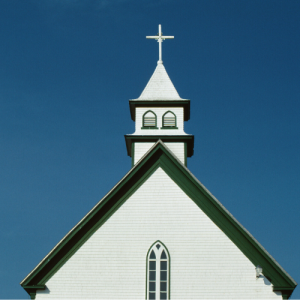
Whether this type of coverage will continue to be available in the insurance industry in the future, and whether governments will provide relief for potential legal liability against retail stores, offices, public services and public venues, would be purely speculative.
A word of caution! While most general liability policies do not contain specific exclusions for legal liability arising from the transmission of infectious diseases, they do however contain an exclusion for criminal and intentional acts. This can potentially result in denial of a liability claim “if” injury, sickness or death results from an organization or business – specifically its directors and officers or senior management – knowingly or intentionally breaking the law.
The most important advice we can give to prevent avoidable lawsuits, uninsured claims and unnecessary harm to your staff, volunteers, members and guests, is for your organization’s leaders to continue to check with the applicable provincial government and public health agency acts, regulations and guidelines on an ongoing basis, as they are subject to change.
The Canadian Council of Christian Charities (CCCC) recently released an online article in which they have linked current government’s guidelines for each province: https://www.cccc.org/news_blogs/noteworthy/2020/06/11/church-doors-are-opening/
Following is a link to a subsequent June 15th notice for religious services in Ontario: http://www.health.gov.on.ca/en/pro/programs/publichealth/coronavirus/docs/advice_religious_services.pdf
We are also pleased to provide the following best practices and creative solutions being used by some of our church and charity client organizations, ideas to open safely and effectively within current government rules and requirements.
CONGREGATIONAL SURVEYS
While some people are ready and raring to go, awaiting the starting flag to get “back to normal”, the reality is that we may not ever get back to the  way things were. Likewise there may be many in your congregation who have personal safety concerns, expressed publicly or harboured privately, especially those who are more vulnerable to a novel coronavirus or other infectious disease due to their age or underlying health condition. This has been evidenced by the fact that many churches have seen attendance in the first week back that has been lower than the allowable capacity, due to health concerns on the part of members.
way things were. Likewise there may be many in your congregation who have personal safety concerns, expressed publicly or harboured privately, especially those who are more vulnerable to a novel coronavirus or other infectious disease due to their age or underlying health condition. This has been evidenced by the fact that many churches have seen attendance in the first week back that has been lower than the allowable capacity, due to health concerns on the part of members.
As faith communities, we must always be sensitive to protecting those among us who are most vulnerable, rather than being unduly influenced by those who are loudest among us. To that end, many churches are hosting online surveys by invitation only to members and regular adherents, to gauge what’s on their minds including concerns, suggestions and what is most important to them in terms of programs, services and events. You can also look for feedback in how to conduct them by providing survey options with various safe and effective scenarios for gatherings and programs going forward.
“WELCOME BACK” VIDEOS
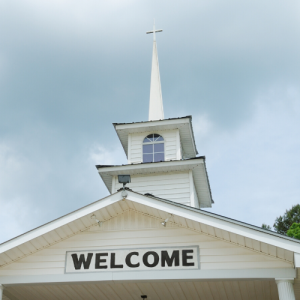 Re-introductions videos are an excellent great user-friendly tool to educate church members and guests on what to expect upon returning to an in-person service. The video can touch on current government regulations and guidelines in your province/region, visually to show how the experience will look from the time visitors park their car in your lot to the time they leave, including a view of the new church set-up inside the foyer and sanctuary.
Re-introductions videos are an excellent great user-friendly tool to educate church members and guests on what to expect upon returning to an in-person service. The video can touch on current government regulations and guidelines in your province/region, visually to show how the experience will look from the time visitors park their car in your lot to the time they leave, including a view of the new church set-up inside the foyer and sanctuary.
The video can be hosted on YouTube or elsewhere and links sent to your member email list, assuming you have already obtained prior consent for electronic communication. If there are video monitors in the building you can have this information video playing in a continuous loop in the foyer for those entering and exiting, as well as in the sanctuary prior to and after each service.
The video can also integrate the following:
- Reassurance that your church is following provincial and local public health requirements with your trained staff and volunteers ready.
- Direction regarding protocols for entry, exit and social distancing while on premises, including while being seated
- Protocol for washroom visits
- Informing members and guests about release and waiver sign-up requirements that your church may have for each adult attendee, including on behalf of their children in their care
Here is a link to an example of a re-introduction video: https://www.youtube.com/watch?v=-QWg_CkTYEk
USHERS, GREETERS AND PARKING LOT ATTENDANTS
It will be more important than ever to have well-trained staff and volunteers to greet your members and guests as they become “re-introduced” to your building premises, including the many changes to your facilities and ways of “doing church”. This should start in your parking lot and entrances, where you should have sidewalk markers two meters/six feet apart for social distancing to enter the building if you anticipate lineups, and identify separate designated entrances and exits to avoid forcing guests too close together. This last point will be especially important for churches that conduct multiple church services on a Sunday, along with the recommendation that the time between multiple services be lengthened versus pre-COVID-19 schedules, to allow for orderly safe entry and exiting.
 Once inside, guests should be guided by both ushers/greeters and by single direction arrows on the floor toward the sanctuary or auditorium, again with social distancing markers if you expect lineups to public assembly rooms or public washrooms. If you have video monitor screens in your entrance, lobby or auditorium, it is a great idea to have an introduction safety video playing on a loop before, between and after church services, reminding attendees about safe traffic flow, seating procedures and etiquette while on the premises.
Once inside, guests should be guided by both ushers/greeters and by single direction arrows on the floor toward the sanctuary or auditorium, again with social distancing markers if you expect lineups to public assembly rooms or public washrooms. If you have video monitor screens in your entrance, lobby or auditorium, it is a great idea to have an introduction safety video playing on a loop before, between and after church services, reminding attendees about safe traffic flow, seating procedures and etiquette while on the premises.
As with any public greeter or staff member in a retail store or other public facility, your staff and volunteers must use a mask/face covering at all times while providing services and directions. Instruct staff and volunteers on proper hand hygiene techniques, safe respiratory etiquette, when to use masks, and how to clean or discard single use masks appropriately.
It will be crucial for your greeters and ushers to provide friendly but firm instructions to individuals and household family groups as they arrive, to maintain safe social distancing in lobbies and to lead them to seating that maintains the two metre/six foot minimum distance from other individuals or groups. If your auditorium or sanctuary has non-fixed individual seats (i.e. stacking chairs) this spacing can be done by spreading the seats throughout the assembly space, with only your ushers authorized to move chairs to accommodate various household family group sizes. If you have fixed pews, every other row should be roped off as inaccessible and two metre/six foot tape marks placed along pews to assist ushers and guests in following safe social distancing guidelines, with directional arrows for one way entrance and exit along each row.
minimum distance from other individuals or groups. If your auditorium or sanctuary has non-fixed individual seats (i.e. stacking chairs) this spacing can be done by spreading the seats throughout the assembly space, with only your ushers authorized to move chairs to accommodate various household family group sizes. If you have fixed pews, every other row should be roped off as inaccessible and two metre/six foot tape marks placed along pews to assist ushers and guests in following safe social distancing guidelines, with directional arrows for one way entrance and exit along each row.
SIGN-IN AGREEMENT, ACKNOWLEDGEMENT, CONSENT AND WAIVER FORM
As with any public venue reopening during the COVID-19 pandemic, we highly recommend that you do the following:
- Post public signs at all exterior entrances and interior entrances to your auditorium or sanctuary putting guests on notice that “you (and any minors in your care) must not enter if you have tested positive for COVID-19, if you are living in a household with others who have tested positive and therefore should be self-isolating, if you have travelled outside of Canada within the past 14 days, if your body temperature is above 38 degrees celsius/100 degrees fahrenheit, or if you are exhibiting any signs or symptoms of an infectious disease including new onset or worsening cough, shortness of breath, difficulty breathing, sore throat, hoarse voice, difficulty swallowing, loss of taste or smell, runny nose/sneezing, nasal congestion, chills, muscle aches, diarrhea, malaise, or headache.”
- Require guests to sign a visitor/attendee waiver agreement at a sign-in desk or table. A *SAMPLE* waiver follows, however we strongly recommend you obtain specific professional legal advice to reflect your organization’s unique premises, operations and requirements.
Have waivers available as inserts in visitor packets waiting on the table to avoid having to pass or handle paper. Each packet can also include an inexpensive pen to sign, to avoid sharing writing instruments. As an alternative to handling and collecting paper, have waivers emailed to members to sign and bring in with them, or provide electronic forms and signature options that can be downloaded from the church website or included on a smartphone app. Members and adherents need only sign once, whereas it is recommended that drop-in guests must sign each and every time. The waiver should be signed by each adult attendee, plus by a parent or guardian should sign on behalf of minor aged children (i.e. under 18 years of age).
_______________________________________________________________________________________________________________________________________________
ABC COMMUNITY CHURCH IN-PERSON EVENT ATTENDANCE WAIVER – SAMPLE
**READ CAREFULLY BEFORE SIGNING** ALTHOUGH THIS WAIVER IS REQUIRED TO ATTEND, BY SIGNING THIS FORM YOU MAY BE WAIVING CERTAIN LEGAL RIGHTS YOU AND/OR YOUR DEPENDENTS MAY HAVE.
By signing this agreement, I acknowledge the contagious nature of COVID-19 and voluntarily assume the risk that I (and my children) may be exposed to or infected by COVID-19 by attending ABC COMMUNITY CHURCH, and that such exposure or infection may result in personal illness, injury, permanent disability, or death.
I understand that if I am 60 years of age or older, or if I am immunocompromised due to medication or an existing health condition or disease, I may be more susceptible to death or serious illness from COVID-19 and am taking increased measures to avoid infection, including wearing a face mask, social distancing or participating in online services.
I understand that the risk of becoming exposed to or infected by COVID-19 at ABC COMMUNITY CHURCH may result from the actions, omissions, or negligence of myself and others, including, but not limited to, ABC COMMUNITY CHURCH employees, volunteers, attendees, program participants and their families.
I agree while on premises or while participating in off-premises activities events of ABC COMMUNITY CHURCH to abide by all rules and recommendations posted in signs on the premises and otherwise communicated in writing or verbally by ABC COMMUNITY CHURCH, its directors, officers, employees and volunteers, to protect my health and safety, including minors in my care.
I voluntarily agree to assume all of the foregoing risks and accept sole responsibility for any illness or injury to myself (or to my children), including, but not limited to, personal injury, disability, death, damage, loss, claim, liability, or expense, of any kind, that I (or my children) may experience or incur in connection with my (or my children’s) attendance at ABC COMMUNITY CHURCH or participation in its events, programs or activities.
On my behalf (and on behalf of my children), I hereby release, covenant not to sue, discharge, and hold harmless ABC COMMUNITY CHURCH, its officers and directors, members, employees, volunteers, agents and representatives, of all liabilities, claims, actions, damages, costs or expenses of any kind arising out of or relating thereto.
I understand and agree that this release includes any all liabilities, claims, actions, damages, costs or expenses of any kind based on the actions, omissions, or negligence of ABC COMMUNITY CHURCH, its directors or officers, employees, volunteers, agents and representatives, whether a COVID-19 infection occurs before, during, or after participation in any ABC COMMUNITY CHURCH program or activity.
__________________________________________
Full Legal Name of Attendee, Parent or Guardian
____________________________________ _________________, _____, 20____.
Signature of Attendee, Parent or Guardian Date
_________________________________________________________________________________________________________________________________________________________
For a word copy of the above-noted sample waiver, please CLICK HERE
**The above waiver is provided as a sample only, not as specific legal or professional advice. Please check with your lawyer for exact wording and content depending on your unique programs, ministries, events and premises.**
If your organization is a member of Plan to Protect® you may also have access to a sample waiver document specifically for nursery, children’s and youth program participants (i.e. for minors under age 18) to have parents or guardians sign on their behalf. The document is called “Declaration of Compliance and Waiver of Liability Relating to Coronavirus/COVID-19” www.plantoprotect.com
Note: It is advisable in public signs and waivers to make special mention of the heightened health risk posed by COVID-19 of attendees due to age (age 60 and older) and/or due to being “immunocompromised”. Being immunocompromised means your immune system is weakened, either by a disease or by a medication, and therefore more likely to get an infection and more likely to have a severe illness if you are infected, than someone who has an immune system that is working well. Immunocompromised (or immunosuppressed) individuals may have been born with or acquired such conditions, including those who take medication after organ transplants, for autoimmune diseases or for certain infections; those who are taking radiation or chemotherapy for cancer; those who have certain forms of cancer; those who have chronic diseases like diabetes type 1 or type 2, kidney failure, liver cirrhosis, and liver failure; or those who other conditions… https://www.canada.ca/en/public-health/services/publications/diseases-conditions/vulnerable-populations-covid-19.html
REPORTING AND PREVENTION OF COVID-19 OUTBREAKS
One of the big advantages of keeping records of those who attend your worship services and events is that you can much more easily identify them for purposes of contact tracing and testing, in the event of an attendee is found to be COVID-19 positive and may have been contagious while on your premises, or in the event of a possible outbreak that may have been spread from an event on your premises.
Options for good recordkeeping include signed waivers and/or online RSVP’s from all attendees at services on your premises. They may also include making available a list of members to public authorities, however this is not a very effective or comprehensive option as members often represent only a minority of those in attendance at services and events.
If there is a case of COVID-19 confirmed in someone who was contagious while attending your premises, your local or regional public health agency will use that information to notify all place of worship attendees and staff. This may include instructions to self-isolate or self-monitor for COVID-19 symptoms to reduce spread and avoid a community outbreak.
Anyone with even one symptom of COVID-19 should get tested and stay home.
Public health will also advise of any additional cleaning and disinfecting measures needed to reduce the risk of spread on your premises.
ADDITIONAL POINTS TO CONSIDER
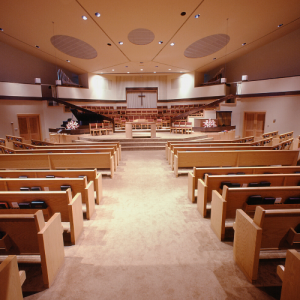
FACILITIES SAFETY CHECKLIST ☑️
☐ Print and post “COVID-19 health assessment” signs for visitors at all entrances. Click Here for examples. These can be obtained through your provincial ministry of health or local public health agency and often come in alternate language versions, including French, Spanish, Mandarin, Cantonese, Hindi, and other popular languages. Include a warning that anyone with COVID-19 symptoms, or who has been in contact with someone with COVID-19, is not permitted to enter.
☐ Blocking off portions of church building not being used for worship services
☐ All meeting and gathering spaces/coffee bars/beverage or food serveries must remained closed, until allowable by provincial government acts and guidelines
☐ Discontinue use of any public drinking fountains by blocking off or disconnecting. Offer bottled water instead, if necessary.
☐ Providing hand sanitizer at the entrance and various places throughout the building, with minimum 70% alcohol content.
☐ Encourage or require the use of masks on premises, especially for seniors and those who may be immunocompromised. Some churches have purchased a supply to make available if attendees did not bring their own.
☐ Have designated volunteers monitor washrooms to limit the number of persons inside at any one time, and to regularly clean and disinfect commonly used high-touch surfaces (e.g. toilets, sinks, door handles, light switches, remote controls, etc.) For churches conducting multiple worship services on a Sunday, at a minimum ensure that all commonly used washroom surfaces are wiped down before, between and after services.
☐ Ensure that washrooms are well stocked with liquid soap, hand sanitizer, paper towels and other supplies for one time use, with waste bins clearly visible and available for immediate disposal.
☐ Post signs in washrooms with instructions or infographic on proper hand washing: https://www.canada.ca/en/public-health/services/publications/diseases-conditions/reduce-spread-covid-19-wash-your-hands.html
☐ Disinfectant kills germs on surfaces. Remove surface dirt first in order for the disinfectant to work effectively. Most regular household cleaning products are effective at eliminating the virus. Cleaning and disinfectant products should have an 8-digit Drug Identification Number (DIN) to confirm it is approved for use in Canada, along with an expiry date. Keep cleaning products out of the reach of children.
☐ Provide drop boxes on the church premises for the deposit of tithes, offerings, prayer requests, COVID-19 suggestions, and other important ongoing feedback.
☐ Or provide designated offering stations on premises during church services.
☐ Continue to encourage or expand options for online giving, including e-transfer, credit card, etc. for contactless offerings
WORSHIP SERVICES CHECKLIST ☑️
☐ Continue to suspend all social gatherings before, during, between and after worship services, including coffee lounges, food services, or altar calls for prayer.
☐ Consider having announcements at the beginning of each service, to cover off instructions to arriving congregants and guests regarding entry, exit and washroom protocols, along with reminders about proper social distancing between individuals and family groups at all times, encouraging good respiratory etiquette e.g. covering mouth and nose with elbow when coughing or sneezing, using facial tissues, then discarding in waste bin and washing or sanitizing hands afterward.
☐ Public Gatherings are now allowed in all provinces; some based on a percentage of sanctuary or auditorium maximum capacity (e.g. 30%) and some based on an absolute maximum number of persons in attendance (e.g. 50). These gatherings include worship services, funerals and weddings.
☐ If the allowable seating capacity will be less than expected attendance, consider multiple smaller worship services on a Sunday.
☐ Consider spreading your worship services throughout the week, including one focused on children and/or youth (e.g. a Saturday morning family service).
☐ Consider developing a system to RSVP attendance to worship services or events. One advantage of this arrangement is that it can allow your staff or ushers to prepare seating accordingly in advance based on reserved group sizes. This also allows for online screening of attendees at the same time through an online questionnaire identifying those who should be self-isolating or self-quarantining, and/or who may be exhibiting symptoms and should not be in public.
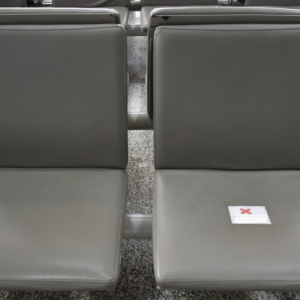 ☐ If you have fixed pew or theatre-style seating, mark alternate rows unavailable or rope them off, to avoid attendees being within the two metre/six foot minimum distance to those behind and in front. Instruct ushers to firmly enforce the two metre/six foot minimum distance between individuals or family groups in each row.
☐ If you have fixed pew or theatre-style seating, mark alternate rows unavailable or rope them off, to avoid attendees being within the two metre/six foot minimum distance to those behind and in front. Instruct ushers to firmly enforce the two metre/six foot minimum distance between individuals or family groups in each row.
☐ If you have non-fixed chair seating, you can also rope off alternate rows and use a spacing of 3 chairs between each individual or family group, which is equivalent to two metres/six feet. Or consider pre-arranging seating for various common individual and group sizes (e.g. 1, 2, 3, 4) with minimum distancing between to each side, front and back. Ensure that only ushers are authorized to change, add or remove chairs as guests are seated.
☐ If you have open areas, wings or overflow areas in, or adjacent to, your auditorium, consider adding chairs in these areas as long as you are not blocking any aisles or fire exits. This may allow you to bring up the available maximum seating relative to the absolute maximum number of attendees or percentage of maximum capacity as currently allowed in your province. Auditorium, sanctuary, chapel or fellowship hall capacity is based on maximum occupant load for each public space as per provincial or municipal building bylaw codes and is usually posted in public buildings. If not posted, please check with your local municipality or fire department to confirm.
☐ If you have other separate overflow spaces or rooms, including fellowship halls, gymnasiums, chapels, etc., and wish to live stream worship services to these spaces, most provinces will allow you to do so subject to the same percentage of maximum capacity as allowed in your sanctuary or auditorium.
☐ Washroom visit procedures should be announced from the pulpit and explained in welcome videos and posted on signs.

☐ No choirs are currently allowed as part of worship services or in choir practices due to the greatly increased risk of viral transmission. Recent studies of outbreaks in church settings and choir practices have demonstrated that respiratory droplets and aerosols generated during singing, loud speech or use of wind instruments may travel well beyond two meters/six feet, and therefore greatly increasing the chance of transmission.
☐ In some provinces (e.g. Ontario) local municipal public health agency guidelines may conflict with the provincial act regulations on the subject of public singing. In these cases, the local public health guidelines prevail.
☐ Where singing is suspended, encourage congregation members instead to hum, listen in quiet contemplation to the words or wear a mask while singing. You may also consider pre-recording a video of your socially distanced worship team to play for the congregation at your Sunday worship service. Alternatively you could provide members with an advance playlist for the week of praise and worship songs that members can listen and sing to while at home, or just prior to service on their personal smartphones or iPads with earphones or earbuds, making sure not to share these devices or accessories.
☐ Where singing is allowed, have the worship team (singers & musicians) socially distanced on the stage. Include a plan for their safe entry and exit from the platform, and cleaning of musical instruments and equipment (microphones, keyboards, etc.). Do not share musical instruments and equipment during a performance and/or before it has been thoroughly disinfected! In some provinces a band or singers can only perform outdoors. In others they can perform inside, but subject to a maximum number on stage (e.g. 5 persons or less). Please check your provincial guidelines.
☐ Please remember to carefully review your current provincial government acts and local public health authority guidelines on singing.
☐ Drummers are generally safe, if they are already protected by drum shield glass!
☐ We know of a particular church that taped a “Pastor’s Crease” similar to a goalie’s on the floor of the podium so that a minister known for being mobile during sermons maintained physical distancing from congregants, by reminding him not to wander around! This also helps with videotaping and keeping within a fixed video camera line of sight for streaming church services online.
☐ Encourage attendees to avoid physical contact, greeting each other instead with a smile or wave.
☐ Do not hand out or share items that cannot be cleaned and sanitized before and after each use, including bibles, hymnals, offering plates and communion trays or cups.
CHILDREN’S MINISTRY CHECKLIST ☑️

While many churches are enthusiastic to return to providing Sunday school, nursery and boy’s and girl’s club programs again, there is no provincial government approval or guidelines for unlicensed child care or nursery YET in most provinces!
☐ Parents must keep children with them for the duration of the service.
☐ If a child needs to go to the bathroom, parents must accompany their own child.
☐ Pastors – add something fun for the kids to participate in the service – a story that kids can relate to, a video during your sermon to illustrate your point, maybe have a short story time during the service so kids feel included. Make sure to let people know that you don’t expect the kids to be perfectly quiet and that you welcome them to be part of the adult service. Continue to keep the content FAMILY friendly!
 ☐ Online kids programs have become popular during the COVID-19 lockdown and the first step is to have a Video Platform policy. Continue to have your teachers do the weekly Sunday School lesson online so families can access, have a weekly story time where someone from the church reads a short story to the kids, offer a modified Vacation Bible School online, puppet show, scavenger hunt, riddles, quizzes, send colouring pages by email, etc. If you don’t have the ability to do children’s programming online, find another church that is doing this and ask if you can share their content with your kids. Be sure to preview any content PRIOR to sharing it. Or ask another church if you can do this together, rotating the weeks with each other.
☐ Online kids programs have become popular during the COVID-19 lockdown and the first step is to have a Video Platform policy. Continue to have your teachers do the weekly Sunday School lesson online so families can access, have a weekly story time where someone from the church reads a short story to the kids, offer a modified Vacation Bible School online, puppet show, scavenger hunt, riddles, quizzes, send colouring pages by email, etc. If you don’t have the ability to do children’s programming online, find another church that is doing this and ask if you can share their content with your kids. Be sure to preview any content PRIOR to sharing it. Or ask another church if you can do this together, rotating the weeks with each other.
NOTE: Do you have a creative idea for kids church during the pandemic that has worked for you? If so, please send us a message on our Facebook page. We would love to share new ideas with all our church clients!
☐ When able to conduct children’s programs again in the future, keep educated on what is possible (including both local public health agency and provincial guidelines), make a plan for re-entry BEFORE starting. The pandemic lockdown has been a useful time for many churches and children’s and youth organizations to update their abuse prevention plans and screening. Plan to Protect® is a great resource for this and will continue to provide information to churches, charities and their leaders. Having a “relaunch training” might be an excellent idea so that your volunteers are all onboard with necessary changes to children’s and youth programs due to COVID-19. Now is the time to review and recalibrate your Abuse Prevention Plan for safety!
☐ Have you added a video platform policy to your prevention plan? If not, here’s a link for a suggested policy for you to review from Plan to Protect®: https://www.plantoprotect.com/en/services/resources/covid-19-response-landing-page/
DRIVE-IN OR REMOTE CHURCH SERVICES
Even during the COVID-19 lock down, drive-in church services have been an option in some provinces. Before considering a drive-in church service, we would encourage you to check your provincial guidelines. Here are some general items to consider:
- Have trained volunteers to help vehicles enter, park and then exit
- Vehicles must be parked two meters/six feet apart or more. Discourage the idling of engines.
- Most provinces no longer have a limitation on the number of vehicles allowed, subject to the two meter/six foot distancing.
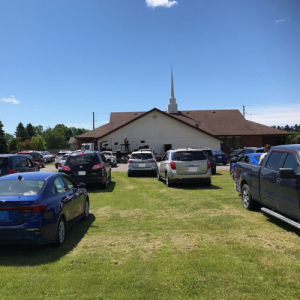 In some provinces, only vehicles designed to be enclosed are allowed (i.e. no convertibles or other SUV or specialty vehicles without tops and windows)
In some provinces, only vehicles designed to be enclosed are allowed (i.e. no convertibles or other SUV or specialty vehicles without tops and windows)- Only members of the same household may occupy one vehicle.
- Discourage people from leaving their vehicles during the service, except when using washrooms. Washrooms must be supervised to limit occupancy, and must be cleaned and disinfected as frequently as necessary to maintain a sanitary environment.
- Those conducting the service on an outdoor platform or stage (e.g. ministers, music worship team members, etc.) must be social distanced two metres/six feet apart.
- No materials can be exchanged between occupants of one vehicle with another vehicle, nor between occupants of a vehicle with person(s) conducting the service.
- If you rent or purchase specialized audio or video equipment to conduct an outdoor drive-in service, please contact our office to ensure it is properly insured.
- Licensed food trucks are allowed in some provinces at an outdoor drive-in church service or event as long it does not result in a public gathering of more people than are allowed in your province e.g. some provinces are 10, some are 50, and so on.
- Picnic and play areas must remain closed, unless allowed in your province.
- Remote service locations operated by churches such as in parks, conservation areas, and on private property are subject to the same provincial guidelines as if they were being operated at the regular church location.
IN-PERSON HOME CELL GROUPS AND WATCH PARTIES
Although some provinces have allowed larger groups to meet together including at churches, it should remain a personal decision whether to expand your bubble or meet in larger groups away from your church premises (eg. groups of 10). Since physical distancing is either simply not possible in home settings and/or cannot be effectively supervised or assured in home settings, although individuals are free to choose “personal” contacts, friendship and fellowship, we strongly advise against church leaders formal authorizing, promoting or organizing home cell groups or in-person watch parties at this time.
LICENSED DAY CARES OPERATED BY CHURCHES or OPERATED IN CHURCHES
In some provinces, licensed day care operations have been allowed to reopen subject to strict requirements. We recommend that you refer to your applicable provincial requirements for full details if your church operates a licensed day care, nursery or after school facility. We have included a few links below:
Ontario
- https://www.ontario.ca/page/covid-19-reopening-child-care-centres
- http://www.edu.gov.on.ca/childcare/child-care-re-opening-operational-guidance.pdf
New Brunswick
British Columbia
SUMMER DAY CAMPS
 A summer day camp or vacation bible school (VBS) should only be considered by churches and charities who have the staff and resources to operate in a safe environment, including the integration of not only their formal Abuse Prevention Plan but also a Health and Safety Plan as per the applicable government requirements and guidelines. For example, in Ontario you must be a licenced Summer Day Camp.
A summer day camp or vacation bible school (VBS) should only be considered by churches and charities who have the staff and resources to operate in a safe environment, including the integration of not only their formal Abuse Prevention Plan but also a Health and Safety Plan as per the applicable government requirements and guidelines. For example, in Ontario you must be a licenced Summer Day Camp.
Following is a link to guidance for summer days camps from the Ontario Ministry of Health: http://www.health.gov.on.ca/en/pro/programs/publichealth/coronavirus/docs/2019_summer_day_camps_guidance.pdf
Our recommendation if you are not able to meet the high standards to operate an in-person summer day camp is to run a “virtual” summer day camp, as many churches have chosen to do this year.
On a related note, churches who own residential summer camp facilities that are not operating overnight camps in 2020 may be considering allowing summer day camps operated by other community organizations to use their camp premises. If so they need to ensure that they can provide a safe site for those third party day camps, that they have the resources for thorough cleaning and disinfection prior and after day camp, be able to confirm the day camp is licenced with the government if required to operate, and obtain a Certificate of Liability Insurance with minimum $5,000,000 General Liability coverage including Abuse Liability, no exclusion for the transmission of infectious diseases, naming the church as owned of the camp as Additional Insured, and preferably, to do so under a contract including a COVID-19 waiver and release of liability in favour of the church, whereby the renting day camp party agrees to hold harmless and indemnify the church as owner of the camp, in the case of any liability claim or action against the church arising out of the operations of the renting day camp.
OUTSIDE USER GROUPS / RENTAL GROUPS
Just because your organization is allowed to resume operations on premises, subject to provincial government or local public health agency requirements regarding social distancing and interaction, does not mean that you should automatically allow outside user groups on your premises.
The reason is twofold; firstly, because that group’s activity may not be allowable or advisable unless they can provide you with written evidence that their activity meets government authority guidelines; and secondly, an outside group’s members and health conditions are unknown to your organization and they may be responsible for the transmission of the virus between their attendees on your premises, including viral residue left on surfaces that may affect the health of your staff, members and attendees.
Any individual, group or business using your facilities, whether for free or for a rental fee, must abide by government authority orders and all public health guidance documents.
 If the outside user group has provided you with proof that their event or activity is allowable, it will be more important than ever to collect proof of their liability insurance coverage in the form of a Certificate of Insurance prior to the rental or use, including your organization being named as Additional Insured on the certificate. Obtaining proof of insurance and Additional Insured status will help to avoid your organization and its directors unnecessarily being drawn into a lawsuit and legal liability for a user group’s negligence in contributing to the transmission of an infectious disease on your premises.
If the outside user group has provided you with proof that their event or activity is allowable, it will be more important than ever to collect proof of their liability insurance coverage in the form of a Certificate of Insurance prior to the rental or use, including your organization being named as Additional Insured on the certificate. Obtaining proof of insurance and Additional Insured status will help to avoid your organization and its directors unnecessarily being drawn into a lawsuit and legal liability for a user group’s negligence in contributing to the transmission of an infectious disease on your premises.
Also ensure that your rental charge reflects the cost of your custodian spending extra time to disinfect all surfaces in the space where the user group has met, including meeting rooms, kitchens, washrooms, fellowship halls, gymnasiums and auditoriums. Avoid allowing use of facilities when you are operating your own programs or ministries at the same time, or allowing use by multiple outside groups at the same time, where there may be groups or individuals using the same entrances, washrooms or other spaces. The use of your facility space should be exclusive to your own programs and events, or to one user group at a time.
CCCC Special Bulletin on Renting Facilities To Outside Groups: How to Avoid Liability Risks – Click Here
WORKPLACE HEALTH AND SAFETY
Staff and volunteers should use a mask/face covering at all times while providing services to guests and attendees on your premises, including parking attendants, greeters, ushers, ministers, worship leaders. Instruct your staff and volunteers on proper hand hygiene techniques, minimum social distancing, respiratory etiquette (e.g. sneeze or cough away from others or into a sleeve), when to use masks, proper use of a face mask, and how to clean or discard single use masks appropriately.
Staff and volunteers must report illness immediately to their manager, and stay at home if they are sick. Staff and volunteers must be regularly screened for symptoms of COVID-19 or contact with others who have tested positive for or suspected to have, COVID-19. Persons who become ill while on premises during a worship service or during their employment must go home right away and self isolate. They can call a provincial telehealth service, their health care provider or an assessment centre for guidance about testing.
For complete workplace health and safety requirements and guidelines, including for COVID-19, please check with your provincial workplace health and safety ministry, agency or local public health authority.
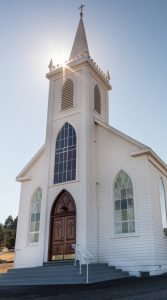
We hope you find this article to be useful as your organization and leaders seek to navigate back to your future as a faith community, with all of the many challenges and opportunities presented by the COVID-19 pandemic.
IMPORTANT DISCLAIMER: This article and its contents is for information purposes only and is not intended as specific legal or civil authority advice. Above all, please continue to follow all applicable provincial government and local public health agency regulations and guidelines in your area with respect to public gatherings and workplaces, including checking for updates on an ongoing basis.
Sincerely yours,
Kenneth A. Hall, President

Kenneth A. Hall, B.A. (Hons), R.F. is the President of Robertson Hall Insurance Inc. Ken specializes in customized insurance and risk management advise for over 7,000 churches and charities across Canada with the Church and Charity Protection Plus program. To find out more about Ken and the team click here. To find out more about Church and Charity Protection Plus click here.


